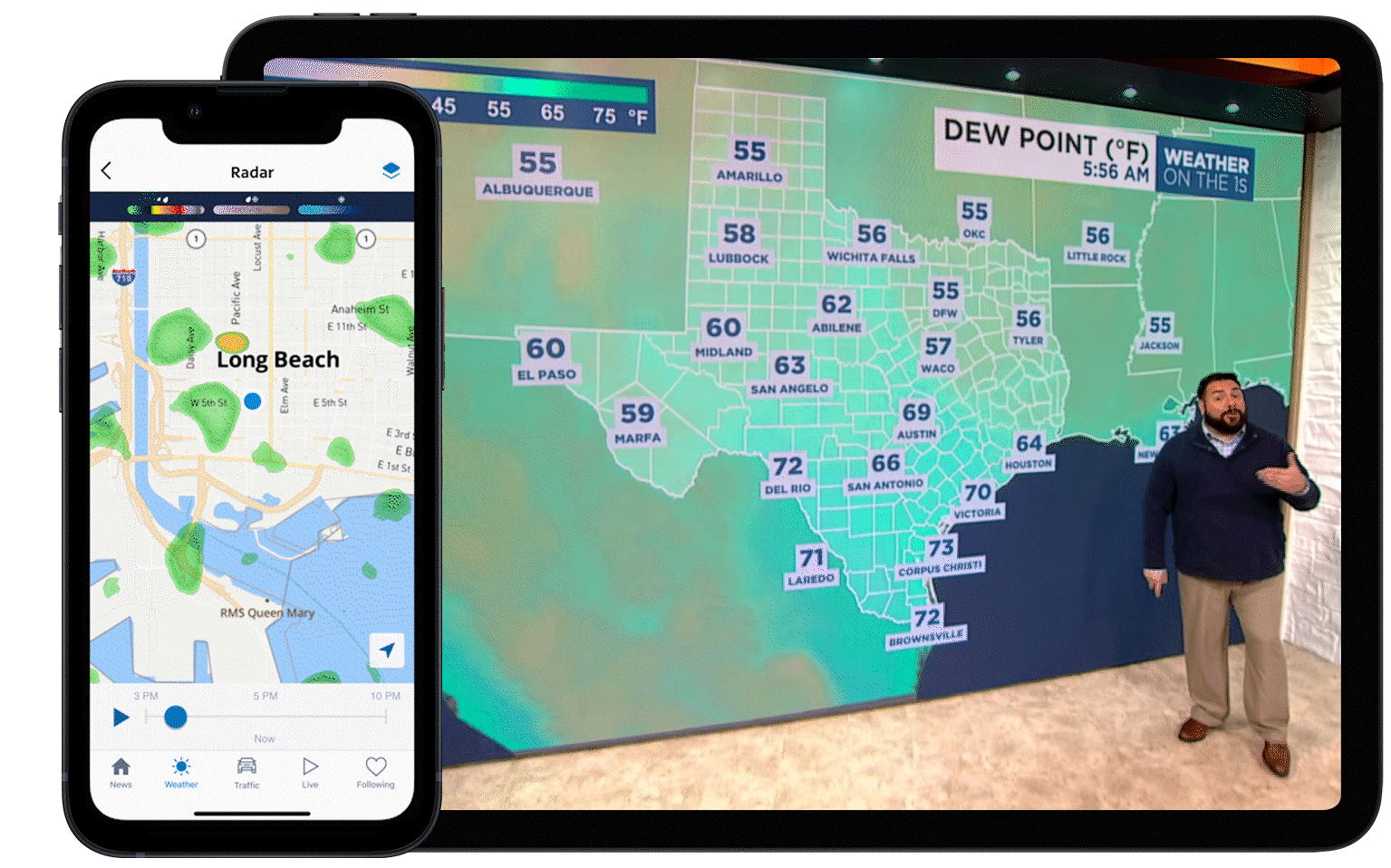Live local news.
Sintoniza las Noticias en vivo desde cualquier lugar.
Access Spectrum News' portfolio of local news networks, wherever you are. Watch on your phone, tablet or TV.Ve el catálogo de la red de noticias de Spectrum Noticias donde sea que estés. Disfrútalo en tu teléfono, tableta o TV.


Latest weather forecasts.
Consulta los últimos pronósticos meteorológicos.
Keep up with the latest weather forecasts from our meteorologists and explore real-time data.Accede al pronóstico del clima de la mano de nuestros meteorólogos y explora los datos en tiempo real.


Original shows on demand.
Ve los programas originales de Spectrum News cuando quieras.
Stream episodes of your favorite Spectrum News shows such as The Big Deal, Capital Tonight, and Inside City Hall, whenever you want.Disfruta los programas originales de Spectrum Noticias a la carta como Pura Política y Diálogo con la Comunidad.


Spectrum News+.
Explora las noticias que te interesan.
Now watch the latest news from across the country 24/7, streaming free with your Spectrum subscription.Lee o ve las noticias hiperlocales de la mano de los periodistas de Spectrum News.



News stories that matter to you.
Read or watch hyperlocal and national news stories by our Spectrum News journalists and local partner publications.
Today's stories in :90.
Get recaps of today's top headlines in just 90 seconds with “Spectrum News in :90.”


Original podcasts.
Explora las noticias que te interesan.
Listen to stories, interviews and analysis from our journalists on the issues impacting your community.Lee o ve las noticias hiperlocales de la mano de los periodistas de Spectrum News.
Mobile alerts.
Stay informed and prepared with notifications, including Morning and Evening Briefings, precipitation alerts and severe weather alerts.


Download the App
Descarga la App
Available for all Spectrum customers.* If you're not a Spectrum customer, enjoy free access for 30 days.Disponible para todos los clientes de Spectrum*. Si no eres un cliente de Spectrum, disfruta de acceso gratuito durante 30 días.
Learn more about Spectrum News on connected devices:
Más información sobre Spectrum News en dispositivos conectados:
Trying to sign in on your TV? Visit the activation page.
¿Intentas conectarte en tu TV? Visita la página de activación.
* Not currently available for SMB or enterprise customers or Spectrum customers receiving mobile service only.
Experience may differ slightly based on location.
All trademarks are the property of their respective owners.
*Actualmente no disponible para clientes comerciales pequeños o grandes.
Tampoco para clientes de Spectrum que solo reciben servicio móvil.
Los derechos de reproducción de todas las marcas registradas pertenecen a sus propios dueños.









